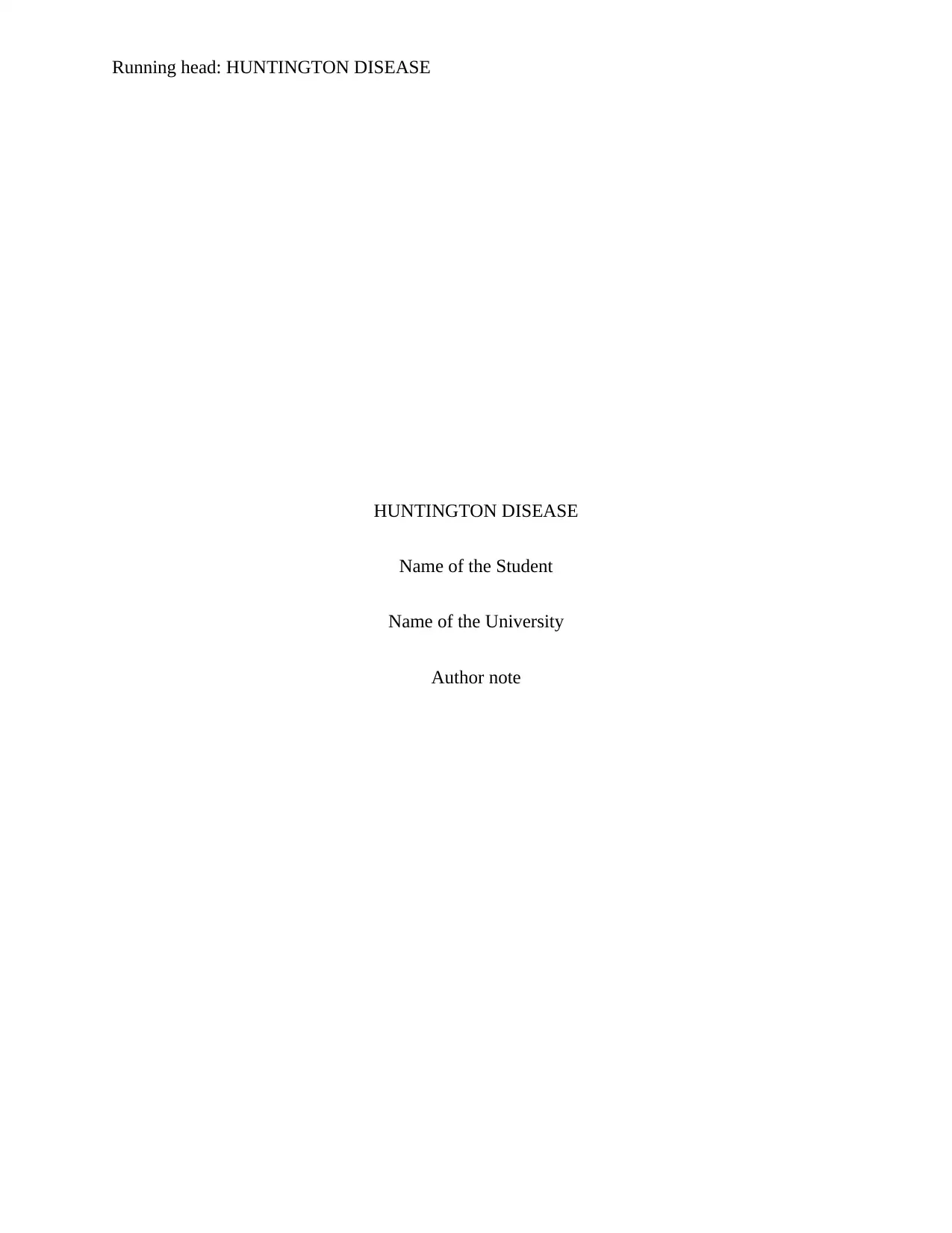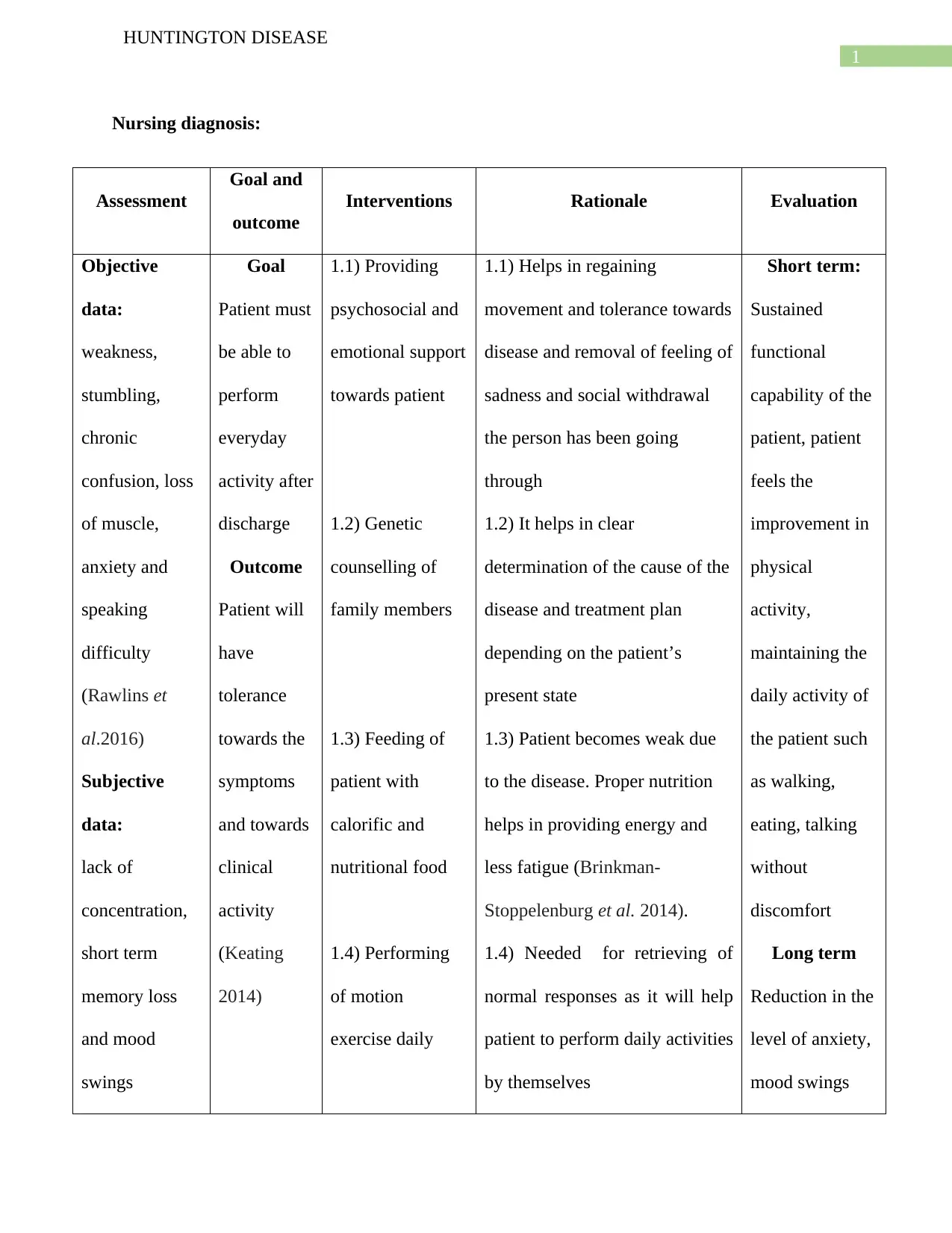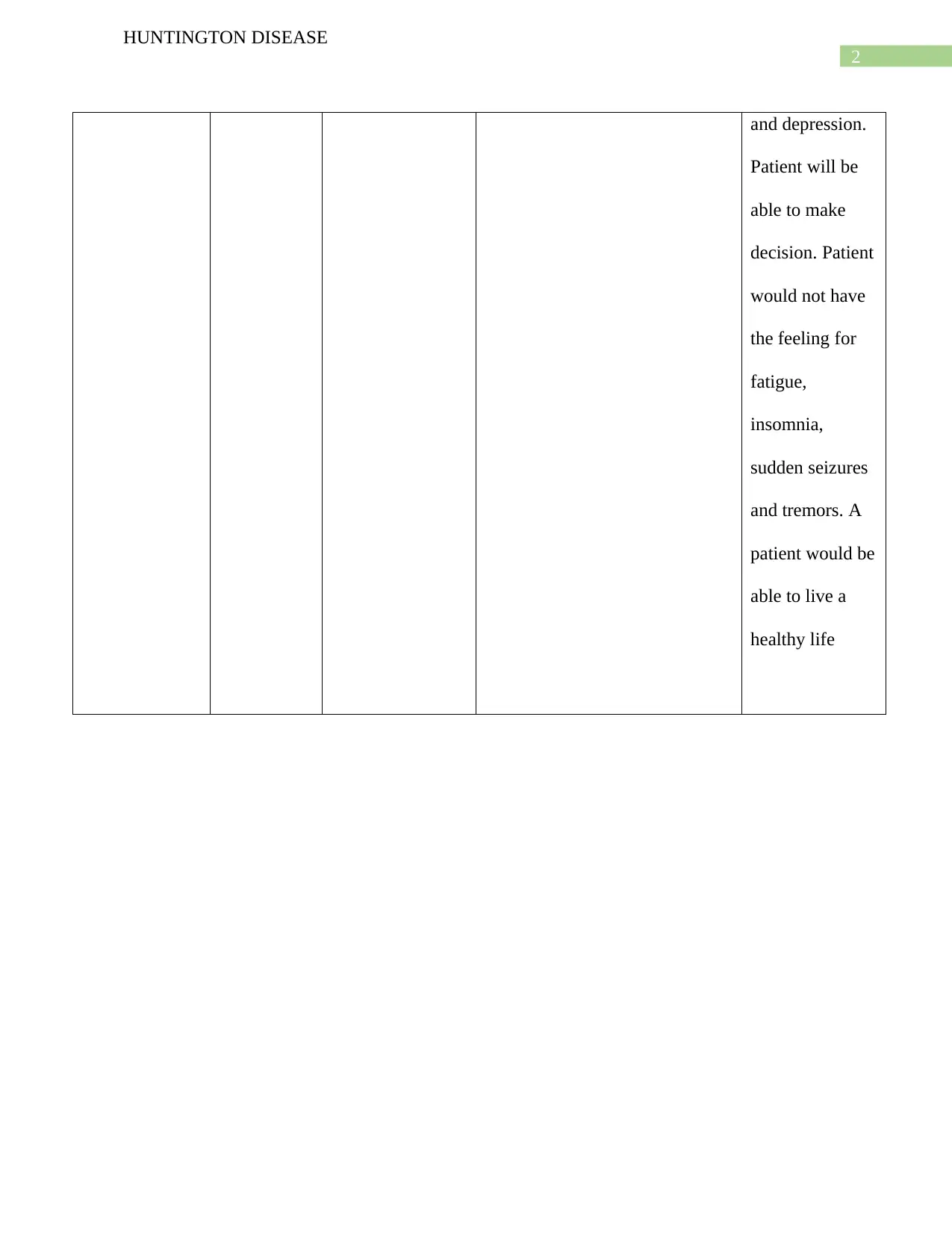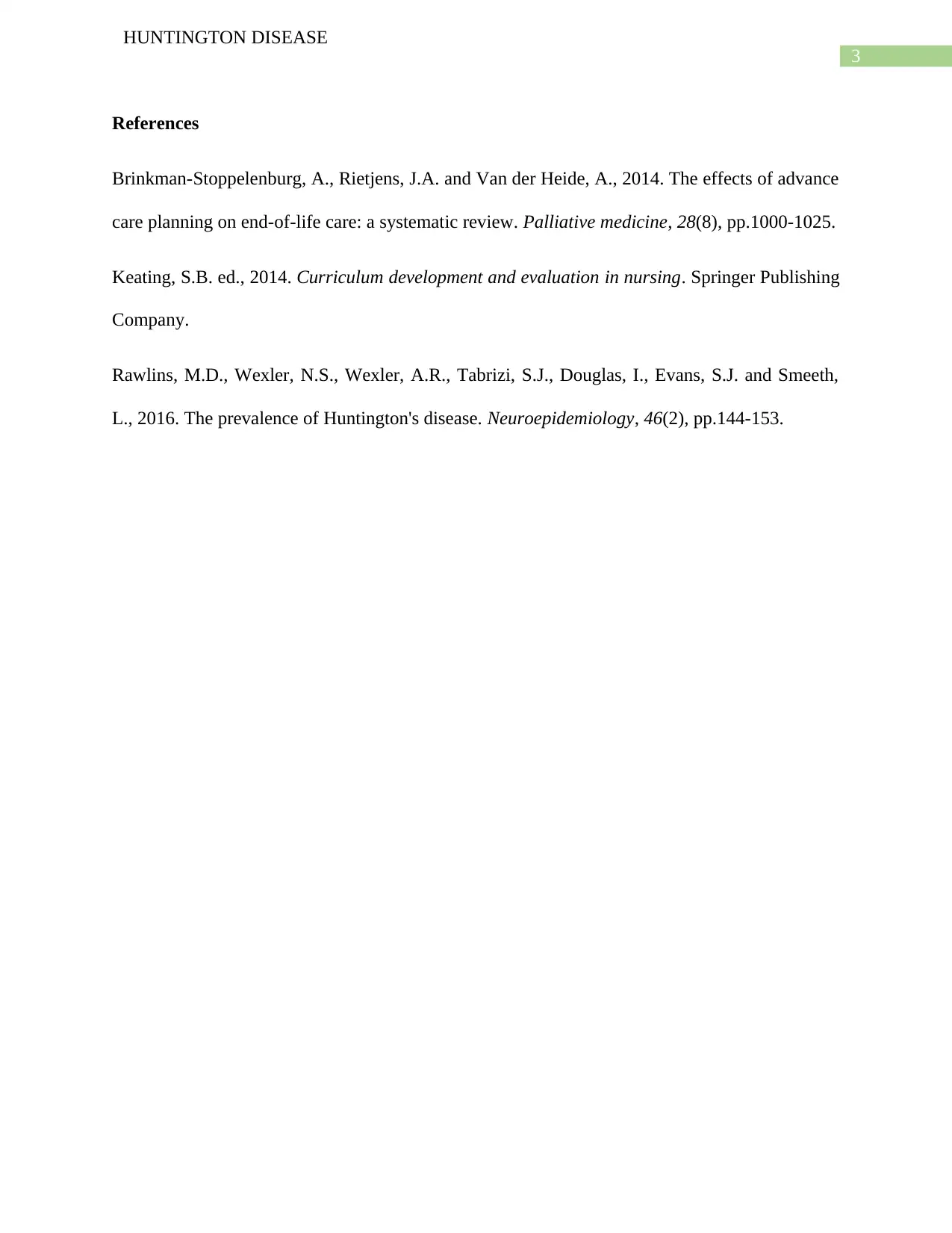Huntington's Disease: Nursing Diagnosis, Interventions, and Outcomes
VerifiedAdded on 2022/08/14
|4
|415
|24
Report
AI Summary
This report presents a nursing analysis of Huntington's Disease, encompassing a detailed assessment of patient symptoms, including weakness, confusion, and mood swings. The report outlines specific nursing diagnoses and goals, such as improving functional capability and reducing anxiety. It details interventions like psychosocial support, genetic counseling, nutritional support, and exercise, along with the rationale behind each. Both short-term and long-term outcomes are discussed, focusing on the patient's ability to perform daily activities, manage symptoms, and maintain a healthy lifestyle. The report includes relevant references to support the information provided, offering a comprehensive overview of nursing care for individuals with Huntington's Disease.
1 out of 4





![[object Object]](/_next/static/media/star-bottom.7253800d.svg)